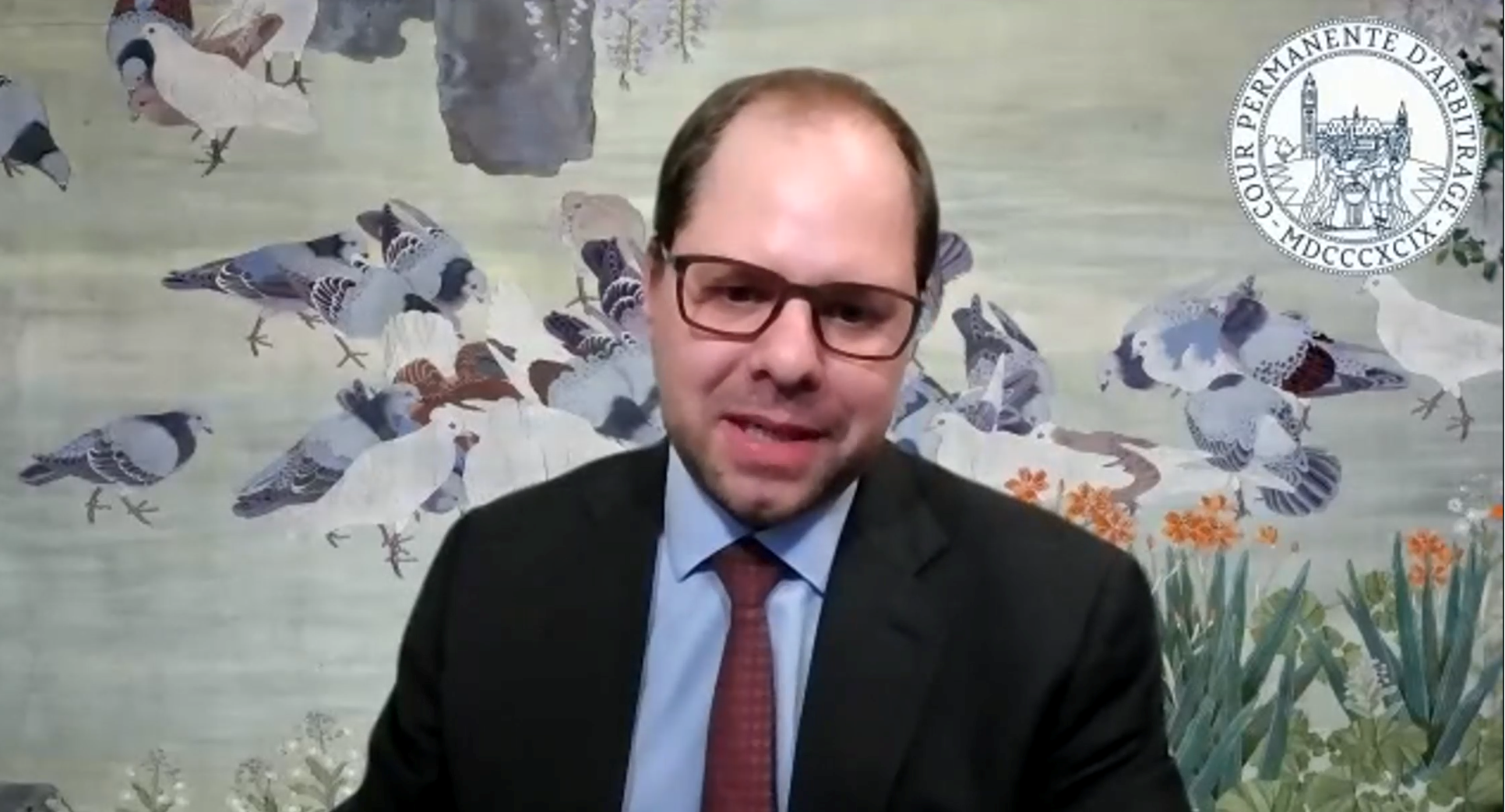
The Origins of Investment Arbitration: A Reaction Against Gunboat Diplomacy Favoring Peaceful Settlement of Disputes
Comments on the Occasion of the Opening Conference of the IX Moot Arbitration Competition in Washington, D.C.
On March 7, 2022, the Center on International Commercial Arbitration hosted a conference on the occasion of the opening of the IX Competencia de Arbitraje Internacional de Inversión (Ninth Investment Arbitration Moot Competition). The extensive program featured prominent arbitration practitioners, such as Dyalá Jiménez Figueres, Partner at DJ Arbitraje, Katherine González Arrocha, Independent Arbitrator, Jean-Paul Dechamps, Partner at Dechamps Law, Marianela Bruno Pollero, Counsel at UNCITRAL, and Martin Doe Rodríguez, Senior Legal Counsel at the Permanent Court of Arbitration (PCA). The speakers were introduced by Professor, Horacio A. Grigera Naón, Director of the Center on International Commercial Arbitration.
Since this year’s competition sponsor was the Permanent Court of Arbitration, an important part of the inaugural conference focused on this institution, its rules, and functions. In his presentation, Mr. Doe explained the evolution and operation of the PCA in relation to investment arbitration. He pointed out many interesting facts about the origins of investment arbitration. The CPA was founded in 1899 at the First Hague Peace Conference. Since its creation, the CPA was involved in debt claims made between States. In particular, in Venezuela at the time many foreigners had suffered losses as a result of a civil war in that country. The first arbitral tribunal established to resolve a controversy related to the enforcement of certain agreements for the payment of these debts explicitly rejected to provide an analysis of the lawfulness of the military action against Venezuela, thereby implicitly accepting and condoning the use of force to enforce pecuniary obligations. This was the case of Preferential Treatment of Claims of Blockading Powers Against Venezuela (Germany, Great Britain, and Italy v. Venezuela) 9 R.I.A.A. p. 99.
At the Second Hague Peace Conference held in 1907, all Latin American countries adhered to the convention that created the CPA and adopted the Drago-Porter Convention, in direct reaction to the award, to prohibit the use of force in private debt claims. This Convention was signed on October 18, 1907.
The so-called “mixed arbitration” (between a State and an individual) occurred for the first time in 1935, when the American company RCA (Radio Corporation of America) sued China. The dispute was about the exclusivity of a radio communications license, for which RCM had invested resources in laying a submarine cable between the US and China. China argued that the concession was not exclusive and precisely to encourage investment it could grant other licenses to competing companies. The governments agreed that RCM could directly arbitrate with China. This was the case of Radio Corporation of America v. China, PCA Case No. 1934-01.
.png)
After World War II, mixed arbitration was more widely adopted, first with the PCA's own rules, and from 1976 increasingly with the UNCITRAL rules. Starting in 1965, the ICSID mechanism also emerged, dealing with the administration of many investment arbitrations based on treaties, contracts and even national laws.
In the Moot Arbitration Competition that between March 8 and 11 followed the opening conference, 70+ students and 40 arbitrators participated in the Competition, which was conducted in Spanish. The competition is co-organized by the Center on International Commercial Arbitration and the Externado University of Colombia, School of Law. Sponsors included International Centre for Settlement of Investment Disputes (ICSID), TDM, the Permanent Court of Arbitration and the United Nations Commission on International Trade Law (UNCITRAL.) In the 2022 edition, the following teams participated: Universidad Peruana de Ciencias Aplicadas (UPC) – Perú; Universidad Francisco Marroquín – Guatemala; Universidad Externado de Colombia – Colombia; Universidad de Buenos Aires (UBA) – Argentina; Universidad Libre – Colombia; Universidad Católica San Pablo – Perú; Universidad Sergio Arboleda – Colombia; Universidad Nacional Mayor de San Marcos – Perú; Universidad de Mendoza – Argentina; Universidad Nacional de Colombia – Colombia.
More information about this Moot Arbitration Competition is available here.